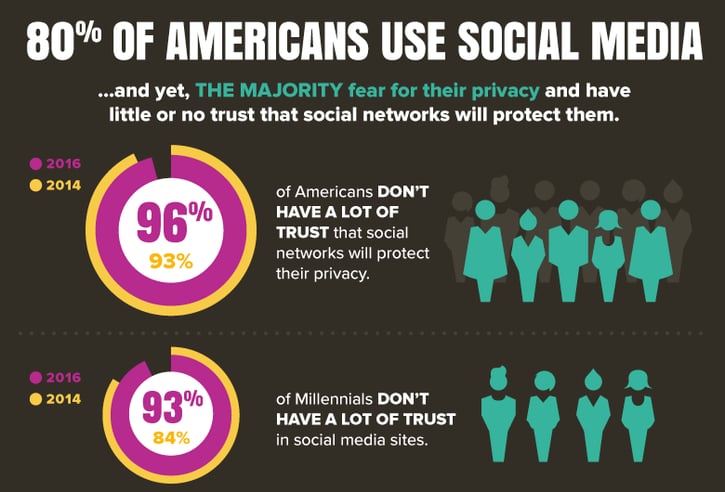How many social networks does your nonprofit have a presence on? 2-4? Have you ever read their Terms of Service (TOS) before your nonprofit registered its account? And if you did read the TOS, did you understand the legal jargon and how each network uses your data and your constituents’ data? Probably not. At the same time, your nonprofit is getting some engagement on social media and might even be raising a bit of money, so do you really need to be worried about what’s in these social networks’ TOS? Yes, and, here’s why…
Constituent data is bought by 3rd parties and then packaged and resold. Sometimes this data is used to track people’s locations at protests and rallies. For example, the ACLU recently discovered that Facebook, Instagram, and Twitter sold activists’ data to a company called Geofeedia that tracked protests in Baltimore and Ferguson, and resold this information to 500 law enforcement agencies. The information included real-time locations, photos, and other personal information. Put simply, the company purchased some of the largest social networks’ data to engage in racial profiling, and constituents had no idea that this was happening. These are the types of online privacy implications that have huge consequences on nonprofits who engage in social justice organizing.
According to a recent follow up poll, conducted by my firm Rad Campaign, the Craig Newmark Foundation, and Lincoln Park Strategies, there has been a rise in the usage of social media among American adults. Despite the usage growth, 96% of Americans don’t trust social media sites to protect their privacy and data. Yet, there is continual pressure to use these networks for organizing, professional networking, and to connect with friends, and as our poll shows, usage is rising.
Key findings of the poll include:
-- The percentage of Americans who trust social media has decreased over the past two years.
-- Only 7% of Millennials have a lot of trust that social media sites will protect their privacy and personal information. Their trust of social media sites is down 9% from two years ago.
-- Adults 65+ have the least trust.
Americans and nonprofits constituents have the right for their data to be protected and not bought and sold for government surveillance.
“Social media companies and their executives have expressed support for activists, movements, and free speech. Mark Zuckerberg endorsed Black Lives Matter and expressed sympathy after Philando Castile’s killing, which was broadcast on Facebook Live. Twitter’s CEO Jack Dorsey went to Ferguson. Above all, the companies articulate their role as a home for free speech about important social or political issues. Yet there is a severe disconnect between these positions and the data access they have provided,” said the ACLU.
Since the ACLU exposed this online privacy breach, Facebook, Instragram, and Twitter have cut off these feeds to Geofeedia. However, that is not enough.
Social networks need to develop better “policies to prohibit developers from exploiting user data for surveillance purposes. The companies should publicly explain these policies, how they will be enforced, and the consequences of such violations. These policies should also appear prominently in specific materials and agreements with developers,” said the ACLU.
How are you protecting your data? And, what concerns do you have around online privacy?




COMMENTS